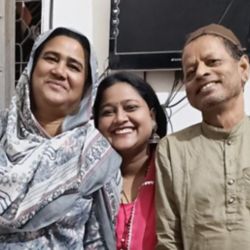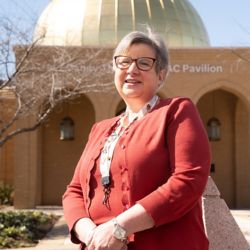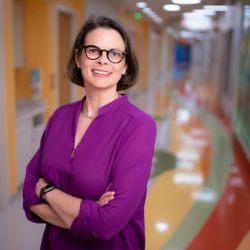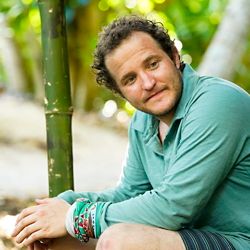My Cancer Survivor Story: ‘I’m Living Life on My Terms Now’
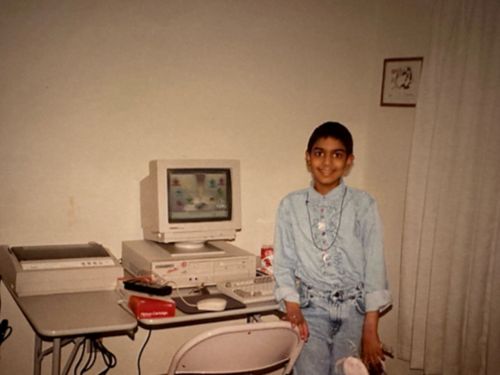
Darshana Magan received a bone marrow transplant to cure her rare form of leukemia when she was 11.
I want to bring awareness to something I feel passionate about in hopes that other childhood cancer survivors can relate. For so many of us, the challenges of being a childhood cancer survivor impact many areas of our lives. I will begin with my personal story followed by the motto I live by, “Be proactive, versus reactive.”
It is important to remind myself of all that was involved for me to become a childhood cancer survivor. Those factors include my team at St. Jude Children’s Research Hospital, the science, ongoing research, support of my family and friends, donors, and most importantly, ME — my strength, my fight for life, and my courage. As survivors, we fought when we had cancer. We should continue that tenacity by advocating for our health.
My personal childhood cancer survivor story
In April 1993, I was diagnosed with chronic myeloid leukemia (CML), a rare form of leukemia in children. My parents were told the cancer was advanced (known as the blast phase) and that I had about 3 months to live.
The next morning, we left our home in Biloxi, Mississippi, to go to St. Jude in Memphis, Tennessee. There was no textbook protocol to follow as I was one of few children, at the time, to ever be treated for CML. I had chemo for 2 months and 1 week of high-dose, full-body radiation treatment.
I was fortunate to have a near-perfect bone marrow match: my younger brother. I will forever be grateful to him. I received a bone marrow transplant on July 23, 1993. At that time, I looked forward to regaining a sense of normalcy. Ten years after my transplant, I felt it. I was told I was cured, and my constant fear of relapse finally subsided.
That last visit to St. Jude felt like a final goodbye. My family and I felt like we were closing this chapter of our lives.

Darshana Magan believes it is important for childhood cancer survivors to advocate for themselves.
The next chapter
Fast forward to 2013, 20 years after my transplant. This is when St. Jude came back into my life through the St. Jude LIFE program. St. Jude LIFE is a study that involves long-term survivors of childhood cancer. We go back to St. Jude for health screenings. Researchers use information from the study to learn more about the long-term effects of childhood cancer.
It was time to write a new chapter with St. Jude. This is where I quickly learned that I needed guidance when it came to my health. I needed to understand what my body truly went through and what I needed to do to ensure a long and healthy life.
Letting go of my childhood trauma of having cancer, I went back to St. Jude for 4 days of testing. I made an effort to understand what survivorship care was and what I needed to do for myself and my health.
I then started advocating for my health. I shared my survivorship care plan with my doctors at home to ensure they were well aware of my medical history. This document educated me on the late effects that I might experience. These are side effects of cancer, or its treatment, which can occur in the months or years after treatment.
I was fortunate to have been in the right place at the right time. I was living in New York, where I had access to some of the best health systems and doctors. At first, the idea of being my own advocate for my health was overwhelming. It was the first time that I was on my own, without my parents and St. Jude to help make every decision.
If I can beat cancer, there's nothing that I can't do.
Childhood cancer survivor
I may never get used to the fear of being in control of my life and my health. But I always, always, remind myself that I was given this second chance at life. Ignorance will not be the thing that takes it away from me.
I now live in Chicago. Each year I see a handful of doctors familiar with my health history. I have different tests and scans. I see a team of doctors whose sole purpose is to guide, assist, and educate cancer survivors on their long-term follow-up care. I have received good news and bad. Some news has been life changing. But as tough as it is, I count my blessings because it could be worse.
I sought help for post-traumatic stress disorder. I now see how my experience of battling cancer as a child has truly impacted my life and how it is still a part of me as an adult.
In the last 30 years since my transplant, the treatment for CML has changed drastically, thanks to the research efforts and technology at St. Jude and elsewhere. Not every childhood cancer survivor will have the same health journey as I have had. Doctors and researchers have made great strides. Treatments have advanced. St. Jude continues to learn more about what causes late effects through studies such as the Long-Term Follow-Up Study (LTFU) and the St. Jude Lifetime Cohort Study (St. Jude LIFE).
How to be your own advocate
As childhood cancer survivors, we face the unknown. Sometimes we have inadequate health systems and insurance coverage. We may fear a financial burden due to medical bills and more.
But I learned that if I don’t advocate for myself, nobody else will.
The most important thing is to find a primary care provider who will listen to you and who’s willing to understand your history.
Ask questions. I always go to appointments prepared with questions. If needed, I ask follow-up questions. I always trust my gut—whether I’m getting a second opinion or questioning a test result. What’s the harm in asking politely?
I always listen to my body. I got to know myself, better than I knew, AND better than anyone else.
Live in the moment—no regrets
These days I’m focusing on my time, whom I spend it with, and how I spend it. Whatever I want to do, I do it. I created a bucket list of places to go, things to see, food to eat, and experiences that I want to have.
I bungee jumped in New Zealand. I skydived in Montauk. I rock climbed and rappelled next to a waterfall. I recently paraglided in San Diego. I mention these feats because I have always had a fear of heights. Yet I overcame that. If I can beat cancer, there's nothing that I can't do.
In June, I walked along side fellow cancer survivors at the Cancer Survivor Walk in Chicago. I wanted to be with other cancer survivors, to feel their energy, and to know that I’m NOT alone. I hope that in reading my story, you will realize that you are not alone, either. We are ALL in this together.
I am strong.
I am a survivor.
And I'm living life on my terms.


